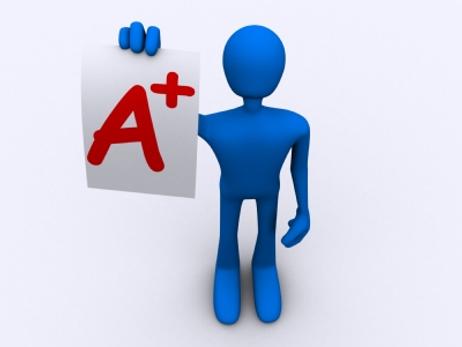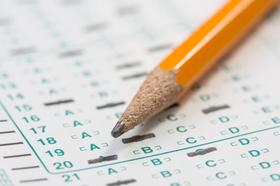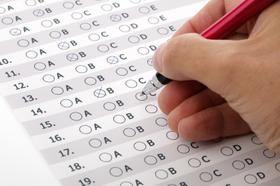Most parents expect to see a progress report with grades on it. The standard letter grades tell where your child stands at a glance, or at least, that's what we have been led to believe. More important than the grades are your child's teacher's comments and the discussions you have concerning your child's progress. This is particularly important in the primary grades when learning difficulties surface. For example, our youngest daughter began struggling with math in 4th grade. We monitored her progress closely and did our best to help. Finally, it was obvious to us that some tutoring would be helpful. We arranged several months of math tutoring, which developed our daughter's confidence in understanding math concepts. Put another way, a grade is simply an indicator. Always look beneath the surface to determine what the real issue is.
Standardized grades. Common grading schemes.
Most schools use letter grades these days. But not every school uses the same letter grade scheme. This can cause problems when sending your child's transcripts to college admissions offices. For example, the A at one school may not be equivalent to the A at another school.
The most common grade scheme is the following:
A+ 97-100
A 93-96
A- 90-92
B+ 87-89
B 83-86
B- 80-82
C+ 77-79
C 73-76
C- 70-72
D+ 67-69
D 63-66
D- 60-62
F Below 60
If your school uses a variation of this scheme, then be sure to send a key or explanation sheet attached to each transcript. Failure




























